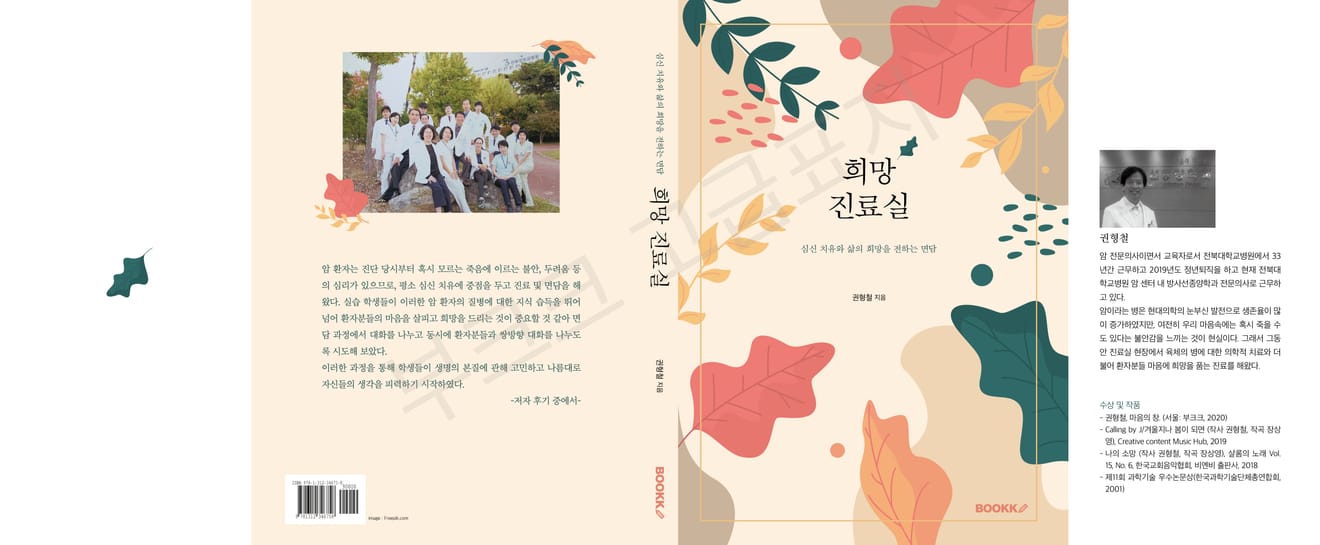Subject
- #Vitality
- #Empathy
- #Doctor-Patient Communication
- #Patient Care
Created: 2024-06-15
Created: 2024-06-15 19:15
We must be able to give patients the vitality of spring. We must be able to give patients the vitality of spring.
After observing the professor's first patient consultation of the afternoon, I honestly felt quite awkward at the time. I had never seen a consultation like this before, so it was very unfamiliar and strange.
Only when the observation time was about to end did I realize that the professor was not simply trying to cure the patient's illness, but rather treating the patient's innermost being, a place so deep that we can hardly fathom, in order to heal them.
What impressed me in the first consultation with the patient was the leisure the professor gave to the patient. When focusing on and questioning whether the patient had recovered from the illness, the professor emphasized that they should not focus solely on the disease, but rather take a calm approach like a tightrope walker, and proceed with the treatment, as if fanning out slowly.
The professor emphasized not just the disease with the patient, but also the patient's own mindset and realization. It was also surprising that the patient and their guardian had such cheerful expressions after the consultation.
I've been struggling with how to build a patient-doctor relationship lately, and honestly, I was still confused after the first consultation, but through observing the professor's interaction with the second patient, I was able to gain some insight into how to form a relationship with a patient. The consultation with the second patient was truly impressive.
The patient was planning RT for prostate cancer (Prostate cancer), and before the professor explained the direction of the treatment in earnest, I could see them engaging in a lot of conversations with the patient. It wasn't about the disease at all, but rather a very personal and intimate conversation. When the patient mentioned feeling like they were talking at home rather than in a hospital, it was clear that this was a necessary moment for a patient filled with fear due to the disease.
I've seen and experienced many consultations that were honestly less than 3 minutes long, the so-called '3-minute consultations', but the professor spent a full hour talking with the patient about various things, opening up their mind as much as possible, and breaking down the patient's suppressed body and mind due to fear and the disease itself. I felt like the patient's complexion, which was initially tense when they entered the consultation room, gradually improved and they began to regain a smile through their conversations with the professor.
It was a time when I was able to realize the true meaning of being a doctor. While any doctor can cure a disease, I was honored to learn and witness who truly heals patients, nurturing the sprouts deep within their hearts. The professor emphasized that one must experience the situation themselves to understand the feelings involved and that they must strive to understand those feelings.
After first comfortably engaging in personal conversations with the patient, the professor explained the treatment approach using a model after making the patient anticipate spring as a way to treat the disease not as just an illness, but as winter, a season that precedes spring. Witnessing this, I was surprised, and every word the professor spoke resonated deeply, as if hope was filling me up again.
After observing this amazing consultation, the professor showed me a poem they had written, 'When Winter Passes, Spring Arrives', and played some CCM. The poem was truly something only the professor could have written.
When I first read and heard the poem, I simply thought of spring and winter as the four seasons we all know, but the professor explained that spring and summer can represent our lives, and that what is winter in our lives? For patients, their current state of illness is winter. They said that we must be able to give such patients spring. And to give spring, we must first realize that we ourselves must become spring.
Hearing those words, I wondered if I could become a spring that gives spring to patients. Am I living thoughtlessly without any purpose? Am I simply accepting the present and worrying only about the future? I felt worried. I wanted to ask the professor how to become spring or at least how to get closer to becoming spring. This is because the professor had already become spring and was giving the patients the freshness and vitality of spring.
(2019. 05. 17. Radiation Oncology Clinical Practicum Essay, Medical School Year 4, Group 3, Han 0ran)

Comments0